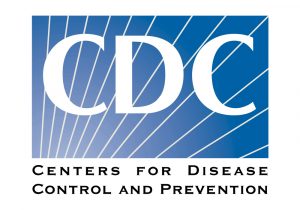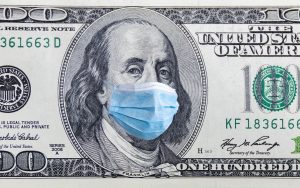In most states, the force majeure event must have proximately caused the delay or deficiency in performance. In Tour de Force: When Is COVID-19 the Cause of Nonperformance?, colleagues Andrew C. Smith, Anne C. Lefever, Brian L. Beckerman, Stephanie S. Gomez, Colin Davis, and how causation considerations may impact force majeure claims in the COVID-19 era.
Articles Posted in COVID-19 (Coronavirus)
Virginia First to Adopt COVID-19 Workplace Safety Mandates
Virginia has adopted statewide emergency workplace safety standards, the first in the nation, to prevent and mitigate the spread of COVID-19. In client alert “Virginia Adopts First COVID-19 Workplace Safety Mandates“, colleagues Mario F. Dottori, Julia E. Judish, discuss the Coronavirus-related workplace safety mandates adopted by the Commonwealth of Virginia.
Force Majeure Triggered by COVID-19 Executive Order
Illinois Governor’s Executive Order prohibited sale of food or beverages for on-premises consumption held to partially excuse restaurant tenant’s rent payment obligations. In “Court Holds COVID-19 Executive Order Triggers Lease’s Force Majeure Clause, Excusing Some Rent Obligations,” colleagues David L. Miller, Patrick J. Potter, Jessica H. Lee, and
Let’s Not Shake On It: Are Contactless Technologies the Future?
 On May 1, Texas began Phase I of its economic reopening, permitting certain businesses to begin operating again. Many states have since followed. As state governors look to continue to reopen with additional safety precautions in place, several (including California, Kansas, Texas, Ohio and Delaware) have implemented rules that require the use of face coverings in public places when social distancing is not an option, which includes work places. COVID-19-related orders have impacted construction projects statewide, though many states are reopening and construction projects are getting underway again, if their progress was even affected in the first place.
On May 1, Texas began Phase I of its economic reopening, permitting certain businesses to begin operating again. Many states have since followed. As state governors look to continue to reopen with additional safety precautions in place, several (including California, Kansas, Texas, Ohio and Delaware) have implemented rules that require the use of face coverings in public places when social distancing is not an option, which includes work places. COVID-19-related orders have impacted construction projects statewide, though many states are reopening and construction projects are getting underway again, if their progress was even affected in the first place.
Post-Pandemic Contracting with Systems Integrators
In responding to the COVID-19 pandemic, CIOs across all industries may decide to undertake IT initiatives to enhance business resiliency and capabilities while containing costs. Some of these initiatives may involve large, complex migrations and implementations of technologies that require the assistance of experienced systems integrators. In “Post-Pandemic Contracting with Systems Integrators,” colleagues Jeffrey D. Hutchings and Craig A. de Ridder discuss the key takeaways that CIOs need to consider before implementing new systems.
Management’s Duties and Responsibilities to Disclose COVID-19 Cases to Commercial and Residential Tenants While Also Protecting Privacy
 As COVID-19 cases continue to be reported by the hundreds on a daily basis, and as businesses begin the process of returning to the worksite, it is imperative that property managers—both commercial and residential—understand their duties and responsibilities with respect to disclosure of COVID-19 cases. As difficult as it may seem, timely and accurate disclosure that an individual who has tested positive for COVID-19 has been onsite is the best practice for everyone’s health and safety, and also to limit liability. Disclosure, however, must be undertaken carefully to ensure that the disclosure is given to the appropriate individuals and entities, that individual medical privacy is preserved, and that disclosures are made in compliance with all applicable laws, regulations and guidelines.
As COVID-19 cases continue to be reported by the hundreds on a daily basis, and as businesses begin the process of returning to the worksite, it is imperative that property managers—both commercial and residential—understand their duties and responsibilities with respect to disclosure of COVID-19 cases. As difficult as it may seem, timely and accurate disclosure that an individual who has tested positive for COVID-19 has been onsite is the best practice for everyone’s health and safety, and also to limit liability. Disclosure, however, must be undertaken carefully to ensure that the disclosure is given to the appropriate individuals and entities, that individual medical privacy is preserved, and that disclosures are made in compliance with all applicable laws, regulations and guidelines.
States Pursue and Enact Liability Shield Legislation as Reopening Continues
 In the wake of the COVID-19 pandemic, states are beginning to pass new legislation designed to protect and reassure businesses facing unknown and significant liability risks. At this point, every state has begun some form of phased reopening following lengthy business shutdowns and stay-at-home orders. However, COVID-19 cases continue to rise in several states, and a vaccine appears unlikely to be available before 2021 at the earliest. Businesses, including building owners and operators, are now being forced to make decisions on how and when to reopen. While Congress has so far failed to enact any new federal liability protections related to the pandemic, several state legislatures have enacted new liability shields that may significantly alter premises liability for businesses and building operators.
In the wake of the COVID-19 pandemic, states are beginning to pass new legislation designed to protect and reassure businesses facing unknown and significant liability risks. At this point, every state has begun some form of phased reopening following lengthy business shutdowns and stay-at-home orders. However, COVID-19 cases continue to rise in several states, and a vaccine appears unlikely to be available before 2021 at the earliest. Businesses, including building owners and operators, are now being forced to make decisions on how and when to reopen. While Congress has so far failed to enact any new federal liability protections related to the pandemic, several state legislatures have enacted new liability shields that may significantly alter premises liability for businesses and building operators.
What Constitutes an “Act of God,” and Other Developments in Force Majeure Law
Historically, “Act of God” was defined to encompass sickness, but the concept has evolved, and it is unclear whether, in the absence of an express reference to epidemics in a force majeure clause, courts will find COVID-19 to be an Act of God. In “Tour de Force: What Constitutes an ‘Act of God,’ and Other Developments in Force Majeure Law,” colleagues Andrew C. Smith, Anne C. Lefever, Brian L. Beckerman, Stephanie S. Gomez and Colin Davis discuss the contours of the term “Act of God” and briefly cover new developments in case law regarding the doctrine of force majeure.
DC Prepares for Phased Reopening
As we approach the next phase of the COVID-19 pandemic, many states and cities around the country have proposed safety measures for construction projects during the pandemic. These guidelines range from a single page of suggestions to multipage requirements handed down by state public health officers. In “DC Real Estate and Construction Committee Issues Recommendations as DC Prepares for Phased Reopening,” John Chamberlain discusses the ways that the District of Columbia has taken to implement a community-driven, “one size does not fit all” approach to establishing recommendations for reopening.
Reshaping Office Life: Updated CDC Guidelines
From mask-wearing to physical separation to staggered schedules and crowding-related transit incentives, implementing the new CDC guidelines may reshape office life. In “Updated CDC Guidelines Impact Business Districts, Office Buildings and Their Tenants, and Users,” colleagues Caroline A. Harcourt, Shani Rivaux and Amanda G. Halter outline how these guidelines contemplate a cooperative relationship between building owners and their employer tenants.
 Gravel2Gavel Construction & Real Estate Law Blog
Gravel2Gavel Construction & Real Estate Law Blog


